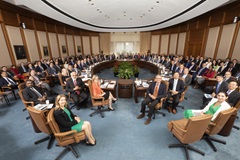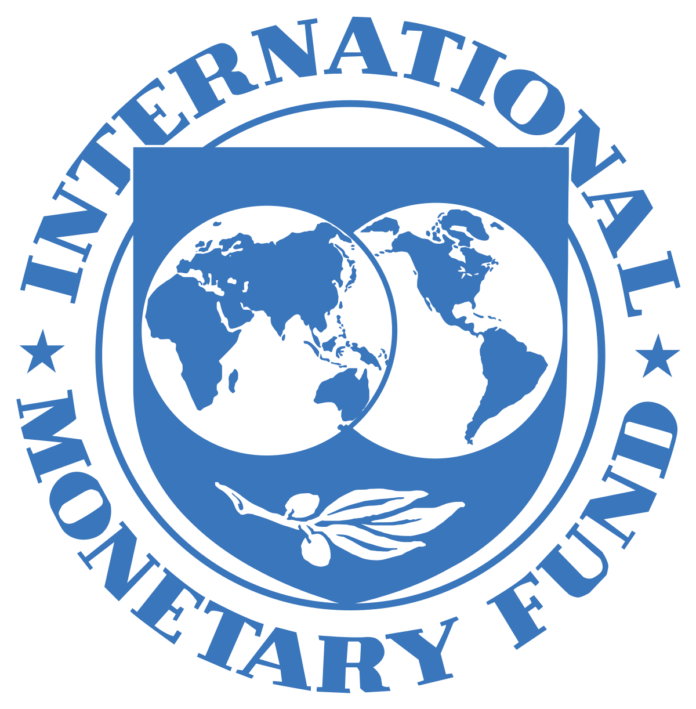Kenema Sierra Leone-Liberia remains a fragile, post-conflict country with weak capacity and limited physical and human capital accumulation. External assistance to Liberia is said to be winding down from its peak in 2016, according to the International Monetary Found (IMF).
On May 31, 2019, the Executive Board of the International Monetary Fund (IMF) concluded the Article IV consultation with Liberia.
To address pressing needs, the government launched its Pro-Poor Agenda for Prosperity and Development (PAPD), focusing on physical and human capital accumulation. Policy uncertainty and slippages, however, imposed a significant toll on the economy over the past two years. Particularly, higher fiscal deficits and accommodative monetary policy have led to rapid depreciation of the Liberia dollar and increased inflation, eroding the purchasing power of the poor.
The near- and medium-term outlook under the baseline scenario is challenging. Growth is projected to slow further to about 0.4 percent in 2019 and remain below 2 percent into the medium-term. In the baseline scenario, the authorities face the possibility of a forced, abrupt adjustment when domestic and external financing options are exhausted. An alternative reform scenario is therefore presented as a more viable alternative, in which growth weakens somewhat in the near term, due to proactive fiscal and monetary tightening, but picks up significantly over the medium term to exceed 5 percent by 2024.
Executive Board Assessment
Executive Directors noted that Liberia is facing major economic challenges and welcomed the authorities’ efforts to bolster macroeconomic stability. Directors emphasized that steadfast and well-sequenced policies and structural reforms are essential to enhance macroeconomic stability and promote higher, sustainable, and inclusive growth. They welcomed the authorities’ Pro-Poor Agenda for Prosperity and Development (PAPD) and agreed that garnering support from the international community will be important.

Directors emphasized that significant fiscal adjustment is needed going forward. They underscored that efforts should focus on mobilizing domestic revenue and rationalizing spending, especially the wage bill, while securing needed space for social and capital spending. Directors encouraged the authorities to formulate realistic budgets and to implement a sound borrowing plan that ensures debt sustainability, while advocating caution in engaging in non-concessional borrowing. They also called for further progress in public financial management reforms to improve the quality of spending in a resource-constrained environment.
Directors agreed that the Central Bank of Liberia (CBL) should tighten monetary policy with the objective of reducing inflation to single digits by 2021. Directors emphasized that further issuance of CBL bills should be suspended until the cost of the operation is included in the government budget, and the fiscal financing gap is closed without CBL financing.
Directors noted that while the financial soundness indicators show that the banking sector appears adequately capitalized, the CBL should enhance its supervisory efforts. They highlighted the need to prioritize strengthening the CBL’s supervisory, regulatory, and resolution frameworks in light of the elevated level of nonperforming loans, focusing on measures that improve loan underwriting standards.
Directors highlighted the need to improve the external position by tightening monetary and fiscal policies, allowing for greater exchange rate flexibility, and raising competitiveness through improvements in the business environment. They welcomed that the authorities’ pro-poor agenda focuses on physical and human capital, particularly improving service delivery in health and education.
Directors noted that in the context of the development agenda, aggressive efforts should be made to strengthen governance and reduce corruption. They advised the authorities to upgrade their anticorruption and AML/CFT frameworks in line with international standards.
Directors emphasized that continued efforts to improve the quality and availability of data are essential for Fund surveillance and economic policy making.
Under Article IV of the IMF’s Articles of Agreement, the IMF holds bilateral discussions with members, usually every year. A staff team visits the country, collects economic and financial information, and discusses with officials the country’s economic developments and policies. On return to headquarters, the staff prepares a report, which forms the basis for discussion by the Executive Board.
At the conclusion of the discussion, the Managing Director, as Chairman of the Board, summarizes the views of Executive Directors, and this summary is transmitted to the country’s authorities. An explanation of any qualifiers used in summings up can be found.
Low income country
CIA world fact book 2019 described Liberia as a low-income country that relies heavily on foreign assistance and remittances from the diaspora. It is richly endowed with water, mineral resources, forests, and a climate favorable to agriculture. Its principal exports are iron ore, rubber, diamonds, and gold. Palm oil and cocoa are emerging as new export products. The government has attempted to revive raw timber extraction and is encouraging oil exploration.
For more qualifiers click http://www.imf.org/external/np/sec/misc/qualifiers.htm






















